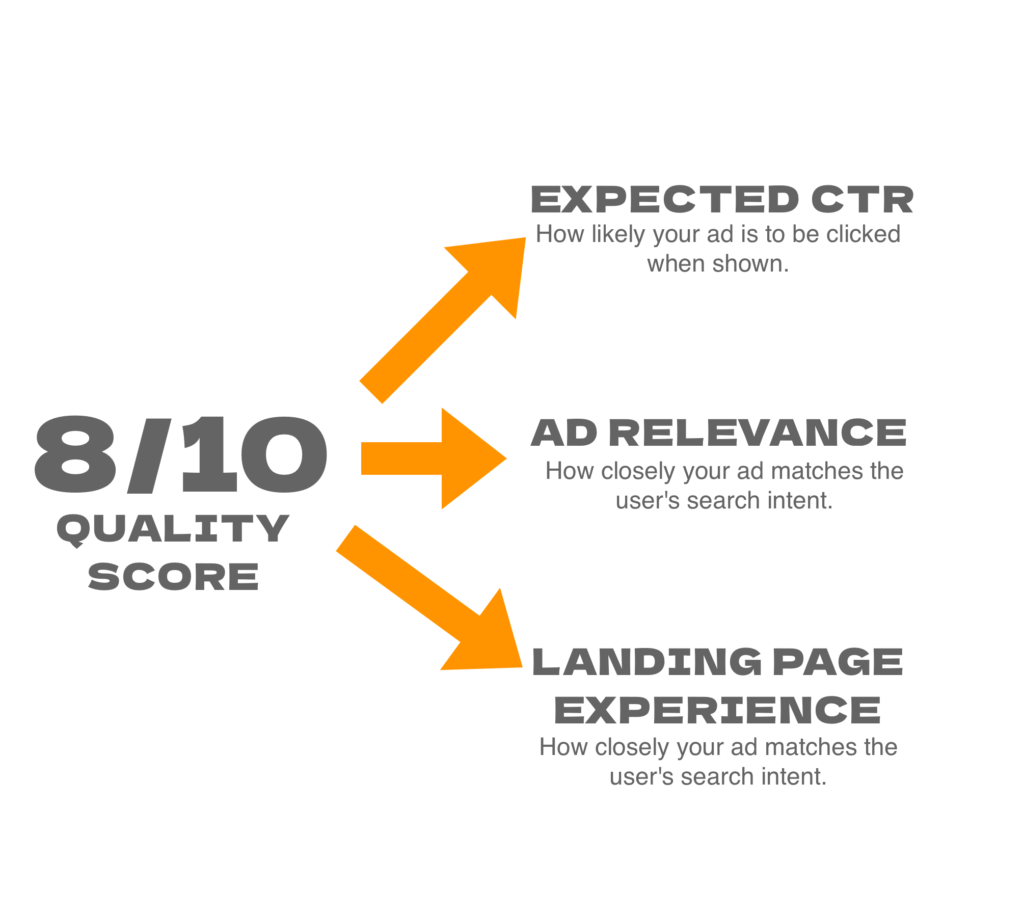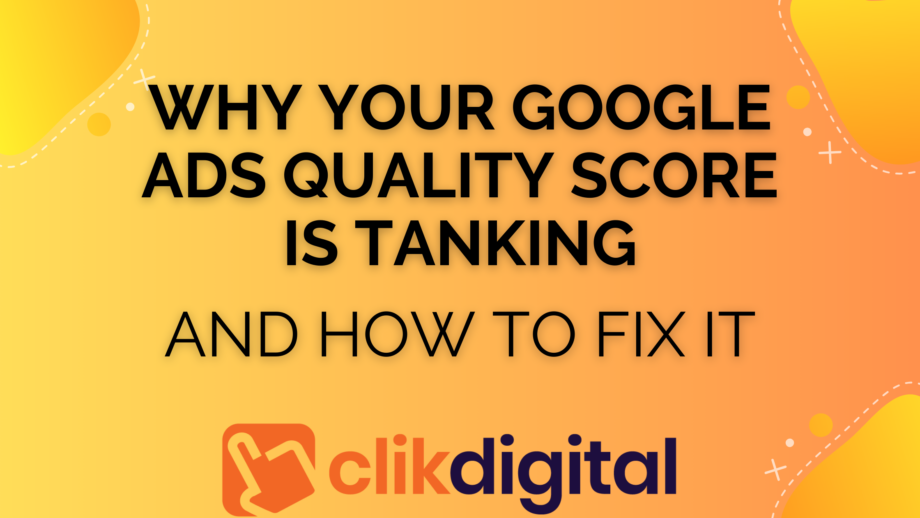Ever run an ads campaign and feel like you’re not getting the return you had hoped? You might be battling a low quality score in Google Ads. This score, assigned by Google Ads to each of your keywords, reflects how relevant and useful your ads are to searchers. And guess what? A low quality score means your ads are less likely to be seen, costing you more per click.
So, what drags down your quality score? Here are the main culprits:

- Low Click-Through Rate (CTR): This is the golden metric. If people aren’t clicking your ads, Google figures they’re not relevant to search queries. Work on crafting compelling ad copy that entices users to click.
- Relevancy: Keywords, ad text, and landing pages need to be in perfect harmony. Imagine advertising “luxury watches” but your ad talks about “discount timepieces” and lands on a page selling socks. Not exactly a click magnet, right?
- Keywords: Ever thrown a bunch of vaguely related keywords into one ad group? Google doesn’t like that. Tidy up your campaigns by creating tightly themed ad groups with specific keywords.
- Landing Page: A stellar ad can’t save a bad landing page. Make sure your landing page clearly reflects your ad and offers a smooth user experience. Don’t send people on a wild goose chase!
- Limited Performance History: If your keywords are brand new, they might not have enough data for Google to assign a quality score. Be patient and focus on building a strong track record.
Don’t fret if your quality score needs some work. Here’s what you can do:
- Boost Your CTR: Write clear, concise ad copy that highlights your unique selling proposition.
- Refine Your Relevance: Ensure every aspect of your campaign, from keywords to landing pages, sings from the same hymn sheet.
- Organize Your Keywords: Break down broad keyword groups into tight, thematic clusters.
- Craft Compelling Landings: Make sure your landing pages are relevant to your ads and offer a seamless user experience.
- Be Patient with New Keywords: Give new keywords some time to gather data and establish a performance history.
By tackling these issues, you can increase your quality score, improve your ad rank, and get more clicks for your buck. Remember, a high quality score is a win-win for you and Google: you get more relevant clicks, and Google keeps users happy with targeted ads.
You Might Be Wondering, Why is a high Quality Score important for both you and Google?
- Advertisers: They get more relevant clicks for their money, leading to potentially better conversions and return on investment (ROI).
- Google: Users see more targeted ads, improving their overall search experience and keeping them coming back to Google.
By working to improve your Quality Score, you can create a win-win situation for your campaign and contribute to a more positive user experience on Google.
Happy optimizing!
